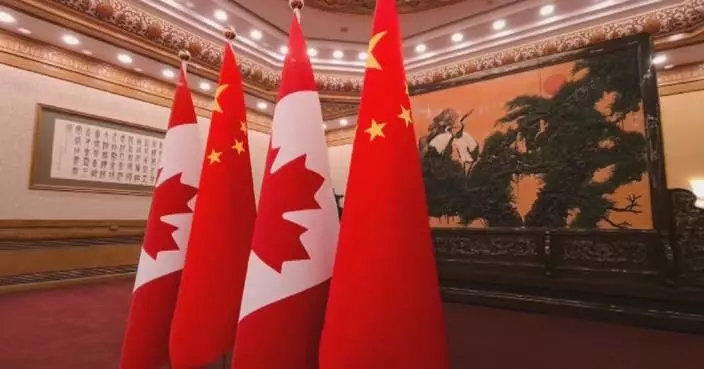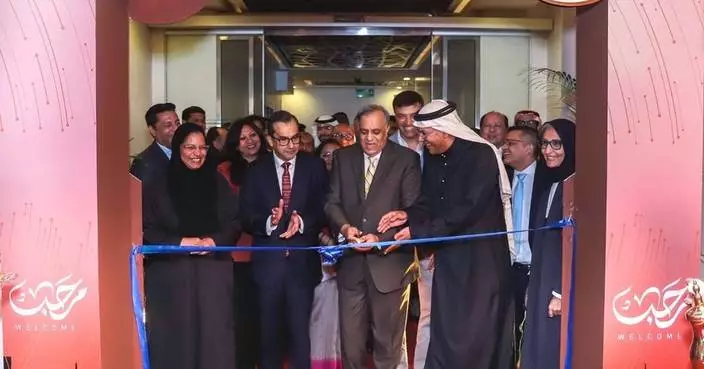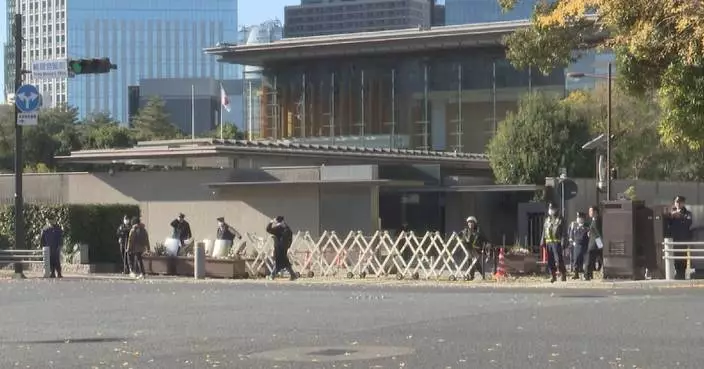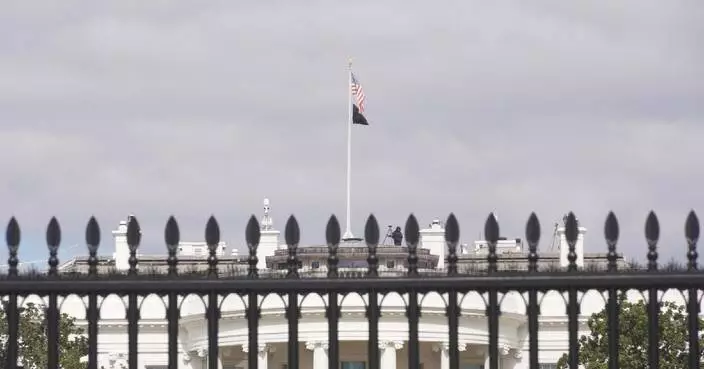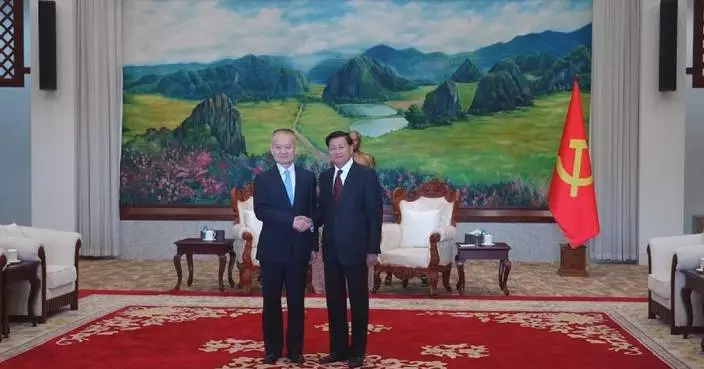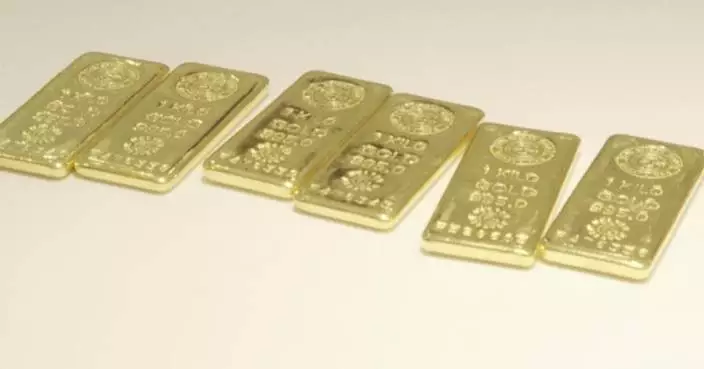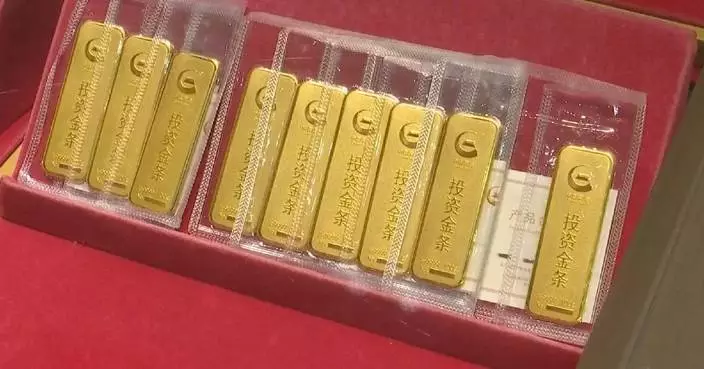
A Man Brandishing a Knife Took a Female Passerby Hostage at Tuen Mun Town Plaza, Police Arrived at the Scene and Fired Shots to Subdue Him

John Lee Welcomes Global AI Leaders to Inaugural WAIC UP! Summit in Hong Kong

NIA Highlights Key Innovation Trends for 2026, Spotlighting Innovation Policies Driving Thailand’s Economy and Society
A Man Brandishing a Knife Took a Female Passerby Hostage at Tuen Mun Town Plaza, Police Arrived at the Scene and Fired Shots to Subdue Him

John Lee Welcomes Global AI Leaders to Inaugural WAIC UP! Summit in Hong Kong

NIA Highlights Key Innovation Trends for 2026, Spotlighting Innovation Policies Driving Thailand’s Economy and Society
Feature · News

BP China Insight: China's market becomes key — U.S. allies voting with their feet
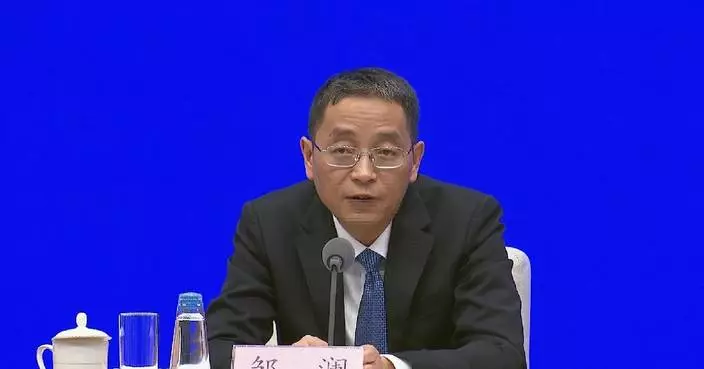
China has no need or intent to use currency depreciation for trade advantage: central bank
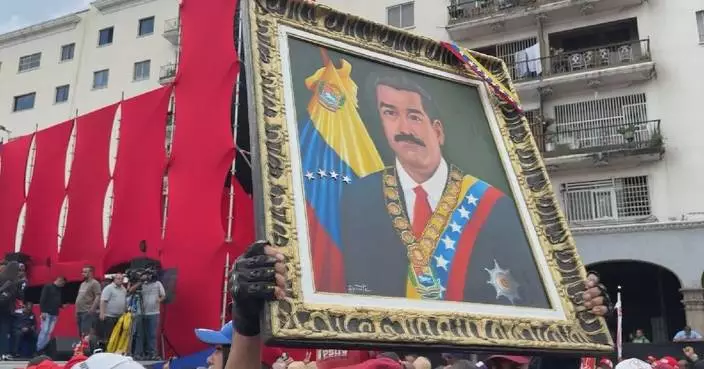
Venezuelan workers rally for Maduro's return

Canadian PM's visit to China paves way for more pragmatic trade ties: scholar
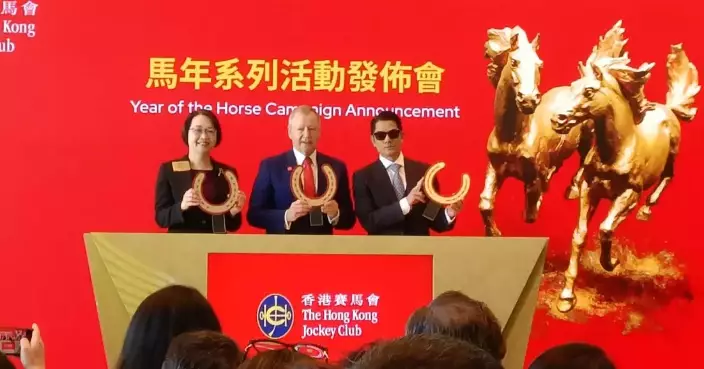
The Chinese New Year Fireworks Display, Solely Sponsored by The Hong Kong Jockey Club, will Shine on the Victoria Harbour on February 18th
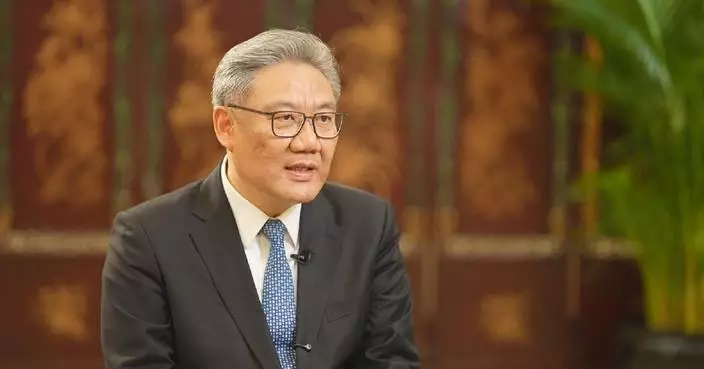
China's commerce minister outlines plans to boost consumption, trade in 2026
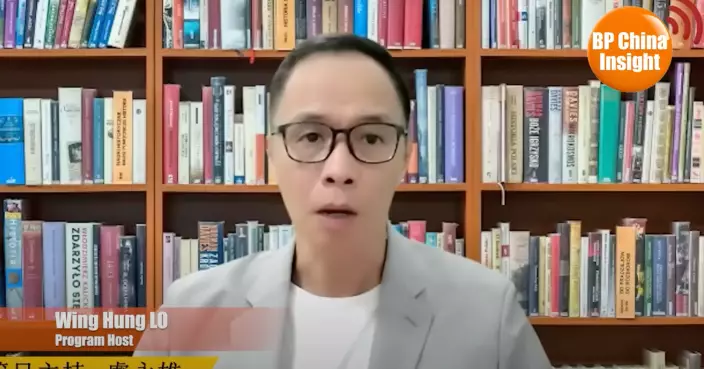
BP China Insight: Japan wants to launch a deep-sea rare earth mining plan. Will it succeed?

BP China Insight: Expert: "De-Sinicization" has turned into "De-Americanization"
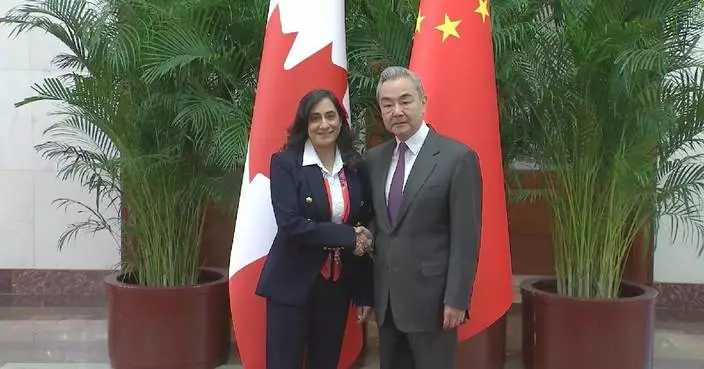
China ready to work for steady, sound ties with Canada: FM
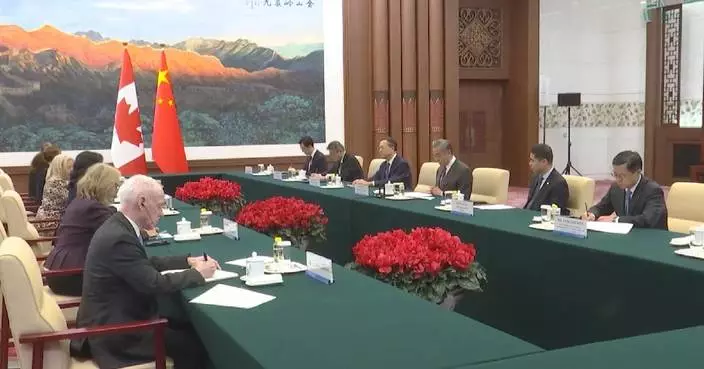
China ready to work for steady, sound ties with Canada: FM

Clayton Kershaw not quite done pitching, will play for US in World Baseball Classic
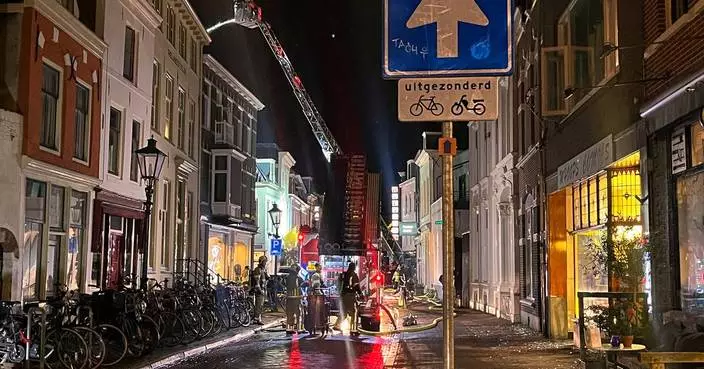
Explosion damages homes and injures at least 4 in the Netherlands

Photos of tensions between federal officers and locals in Minneapolis
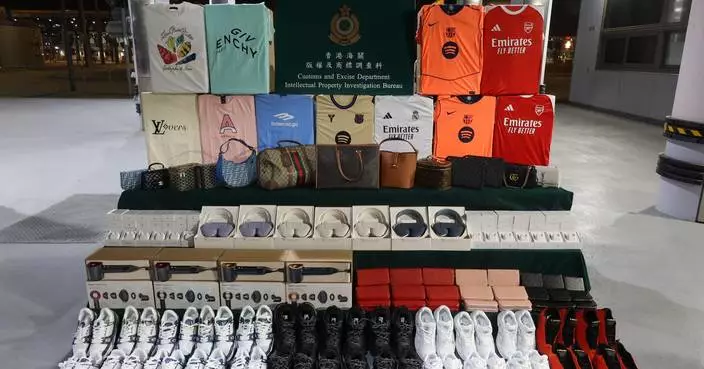
Hong Kong Customs Seizes 19,000 Counterfeit Goods Worth $14 Million in Major Operation
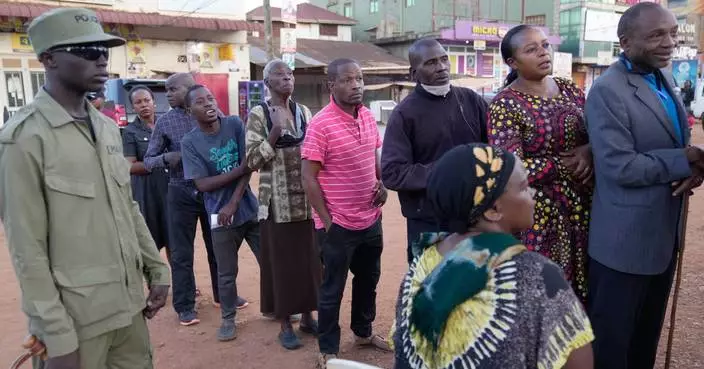
Delays plague voting in Uganda's presidential election

Trump's Insurrection Act threat stands out against the law's long history

BP China Insight: Japan wants to launch a deep-sea rare earth mining plan. Will it succeed?

BP China Insight: Expert: "De-Sinicization" has turned into "De-Americanization"
China ready to work for steady, sound ties with Canada: FM
China ready to work for steady, sound ties with Canada: FM

BP China Insight: China's market becomes key — U.S. allies voting with their feet
China has no need or intent to use currency depreciation for trade advantage: central bank
Venezuelan workers rally for Maduro's return
Canadian PM's visit to China paves way for more pragmatic trade ties: scholar

The Chinese New Year Fireworks Display, Solely Sponsored by The Hong Kong Jockey Club, will Shine on the Victoria Harbour on February 18th
China's commerce minister outlines plans to boost consumption, trade in 2026

Clayton Kershaw not quite done pitching, will play for US in World Baseball Classic

Explosion damages homes and injures at least 4 in the Netherlands

Photos of tensions between federal officers and locals in Minneapolis

Hong Kong Customs Seizes 19,000 Counterfeit Goods Worth $14 Million in Major Operation

Delays plague voting in Uganda's presidential election

Trump's Insurrection Act threat stands out against the law's long history
Feature·Bloggers

【Deep Throat】Trump's Latest Iran Tariff Bluff: China Sees Right Through It

【Ariel】Jimmy Lai’s “Solitary” Twist: Judges Say He Asked For It

【What Say You?】Accomplice Witness Chen Zihao: Family Stalked, Fears Black Bloc Revenge After Release

【Deep Blue】International Laws? You Kidding Me?

【Bastille Commentary】Chicken-hearted Conservatives: Sanctioning Hong Kong Judges While Trump Runs Wild

【What Say You?】Trump’s “Maduro Grab” Gets a Glossy Spin by the Usual Suspects

Audi Revolut F1 Team Welcomes Nexo as Official Digital Asset Partner
- Canada agrees to cut tariff on Chinese EVs in return for lower tariffs on Canadian farm products
- In Spain, Venezuelan migrants balance hope and fear about their country's future
- At top UN court, Myanmar denies deadly Rohingya campaign amounts to genocide
- Uganda's president leads in tense election marred by internet shutdown and voting interference
- A South Korean court sentences Yoon to 5 years in prison on charges related to martial law decree
- She set a photo afire, lit a cigarette — and became a symbol of resistance for Iran protesters
- Trump threatens to use the Insurrection Act to end protests in Minneapolis
- In their words: Greenlanders talk about Trump's desire to own their Arctic island
- How the White House and governors want to fix AI-driven power shortages and price spikes
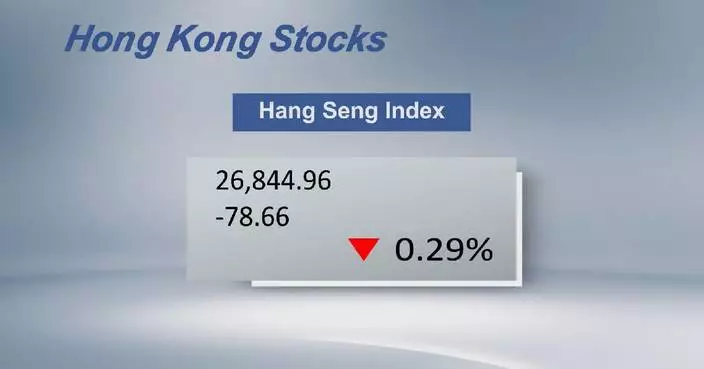
Hong Kong stocks close lower
- Returned Shenzhou-20 astronauts meet press
- China to further promote innovative strategic partnership with Switzerland for more outcomes: spokesman
- China to promote innovative development of foreign trade
- Chinese shares close lower Friday
- China FAST telescope links with test antennas in breakthrough upgrade
- China launches 'TIR Plus' business models to upgrade cross-border logistics
- China's Xuelong icebreaker leaves New Zealand for Antarctic expedition after replenishment
- China reiterates opposition to official engagement with Taiwan region
- FM spokesman on Japan-Philippine defense pact

Metis "Starry Pro": Achieving Greater Wealth Stability in a Changing Landscape.
- KuCoin Ranks Among Top Three Exchanges by Market Share Growth in TokenInsight's 2025 Annual Report
- Infinix Wins Multiple "Best of CES 2026" Awards for Satellite Communication and Breakthrough Innovations
- VF 8 Is Connecting a New Global VinFast Community
- ONYX Hospitality Group Partners with Yee Fung Group to Launch "Y Hotel Nanshan Shenzhen", Expanding its Portfolio in China
- INCHEON-IFEZ Booth Wraps Up a Successful CES 2026, Recording $560M in Export Consultations and 17 Innovation Awards
- Tam Jai International Unites Its Three Iconic Brands at Clockenflap 2025, Rallies Support for Tai Po Community with "Made in Hong Kong, Made to Move" Spirit
- AFERIY Unveils Next-Generation Portable Power Station Nomad1800 at CES
- Hongqi Golden Sunflower Guoya Receives Recognition from Gulf Business
- Scales Intelligent Driving into Heavy-duty Trucks and Unmanned Logistics

What you need to know about Grok and the controversies surrounding it
- At Detroit auto show, spotlight dims for EVs
- Kaiser affiliates will pay $556M to settle a lawsuit alleging Medicare fraud
- What to know about UK legal changes aiming to regulate AI-generated nude images
- Ailing astronaut returns to Earth early in NASA's first medical evacuation
- Aimed at the growing number of young Chinese who live alone, a new app asks: ‘Are you dead?'
- Wikipedia unveils new AI licensing deals as it marks 25th birthday
- Grok blocked from undressing images in places where it's illegal, X says
- NASA sends 4 astronauts back to Earth in first medical evacuation
- Public mistrust linked to drop in deceased donor organ donations and kidney transplants

Julio Iglesias denies sexual abuse allegations, calling them 'absolutely untrue'
- Kathleen Kennedy, steward of 'Star Wars,' steps down from Lucasfilm
- Former Universal chair David Linde named CEO of Sundance Institute
- The new BTS album title and what to know about the K-pop band’s comeback
- Min Jin Lee's 'Pachinko' follow-up, 'American Hagwon,' will explore Korean education obsession
- Actor Timothy Busfield ordered held without bond in New Mexico child sex abuse case
- Royal Opera sees generation change as Jakub Hrůša and Speranza Scappucci come in
- Julio Iglesias accused of sexual assault in Caribbean as Spanish prosecutors study the allegations
- Fanatics debuts Fanatics Studios with Olympics, Tom Brady and ESPN at Intuit Dome
- Warm up with creamy rutabaga, parsnip and cheddar soup

John Harbaugh's mentor, Andy Reid, had a better second act than his first
- Madison Keys pictures herself as a champion again at the Australian Open
- At a war-ravaged sports center in Ukraine, the hope for Olympic glory persists
- New Oceania soccer competition has a 2029 Club World Cup spot as the winner's reward
- Warriors coach Steve Kerr chatted with Jonathan Kuminga about his uncertain situation
- Maple Leafs' William Nylander exits game with lower-body injury
- Wembanyama shaves head, shines brightly in leading Spurs past Antetokounmpo, Bucks
- Butler, Curry, Moody give Warriors three scorers with 20 or more points in 126-113 win over Knicks
- American Ben Shelton heads to the Australian Open after losing in the Auckland quarterfinals
- Eichel scores in OT as Golden Knights rally to beat Maple Leafs 6-5

Two men sentenced for unauthorized transfer of sports facility bookings, facing 80 hours of community service.
- Labour Department Launches Good Employer Charter 2026 to Promote Work-Life Balance and Family-Friendly Practices.
- New Melioidosis Case in Hong Kong: Public Urged to Maintain Hygiene After Recent Storms
- Hong Kong Launches Port Community System for Smarter, Integrated Maritime Operations
- Government Proposes Bill to Enhance Medical Council's Complaint Handling in Hong Kong
- Sick 70-Year-Old In Custody Dies After Deteriorating Condition in Public Hospital
- Health Authorities Warn of Rising Dengue and Chikungunya Fever Risks Amid Favorable Mosquito Breeding Conditions
- Anti-Illegal Worker Operations in Hong Kong Result in Eight Arrests and Ongoing Investigations
- Hong Kong Customs dismantles drug lab, seizes $10 million in etomidate and cocaine, arrests two suspects.
- FEHD Reports Low Aedes Albopictus Mosquito Levels in January Gravidtrap Survey

Türkiye opposes military operation against Iran, says FM
- Xi hopes new foreign ambassadors gain comprehensive understanding of real China
- Japanese protesters urges PM to retract erroneous remarks on China’s Taiwan
- U.S. stocks close higher as chip, financial stocks rally
- Chinese yuan weakens to 7.0078 against USD Friday
- U.S. dollar ticks up
- Crude futures settle lower
- U.S. tariffs plunge Lesotho's textile industry into crisis
- Japanese PM's erroneous remarks on China's Taiwan undermine regional stability
- Palestinian death toll in Gaza rises to 71,439: health authorities
Category · News

Audi Revolut F1 Team Welcomes Nexo as Official Digital Asset Partner

John Harbaugh's mentor, Andy Reid, had a better second act than his first

Canada agrees to cut tariff on Chinese EVs in return for lower tariffs on Canadian farm products

Two men sentenced for unauthorized transfer of sports facility bookings, facing 80 hours of community service.

Labour Department Launches Good Employer Charter 2026 to Promote Work-Life Balance and Family-Friendly Practices.

In Spain, Venezuelan migrants balance hope and fear about their country's future

Metis "Starry Pro": Achieving Greater Wealth Stability in a Changing Landscape.

At top UN court, Myanmar denies deadly Rohingya campaign amounts to genocide

New Melioidosis Case in Hong Kong: Public Urged to Maintain Hygiene After Recent Storms

Julio Iglesias denies sexual abuse allegations, calling them 'absolutely untrue'

Hong Kong Launches Port Community System for Smarter, Integrated Maritime Operations
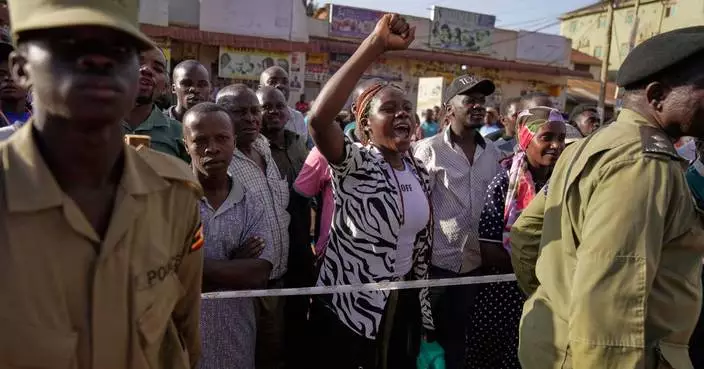
Uganda's president leads in tense election marred by internet shutdown and voting interference
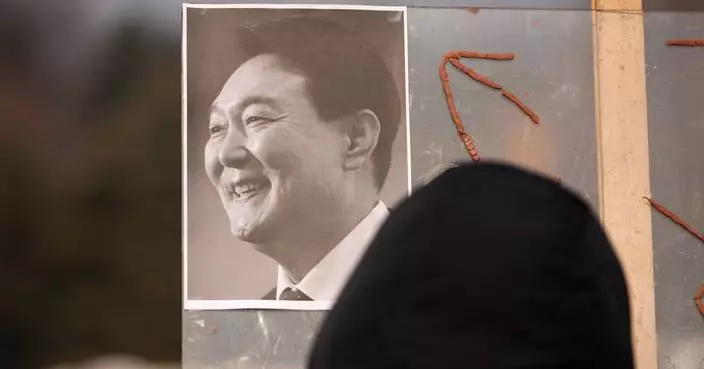
A South Korean court sentences Yoon to 5 years in prison on charges related to martial law decree

KuCoin Ranks Among Top Three Exchanges by Market Share Growth in TokenInsight's 2025 Annual Report
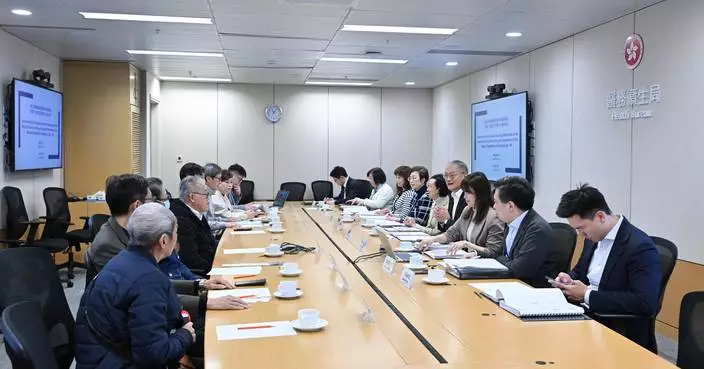
Government Proposes Bill to Enhance Medical Council's Complaint Handling in Hong Kong

Madison Keys pictures herself as a champion again at the Australian Open

Infinix Wins Multiple "Best of CES 2026" Awards for Satellite Communication and Breakthrough Innovations

Sick 70-Year-Old In Custody Dies After Deteriorating Condition in Public Hospital

Health Authorities Warn of Rising Dengue and Chikungunya Fever Risks Amid Favorable Mosquito Breeding Conditions
Hong Kong stocks close lower

Anti-Illegal Worker Operations in Hong Kong Result in Eight Arrests and Ongoing Investigations
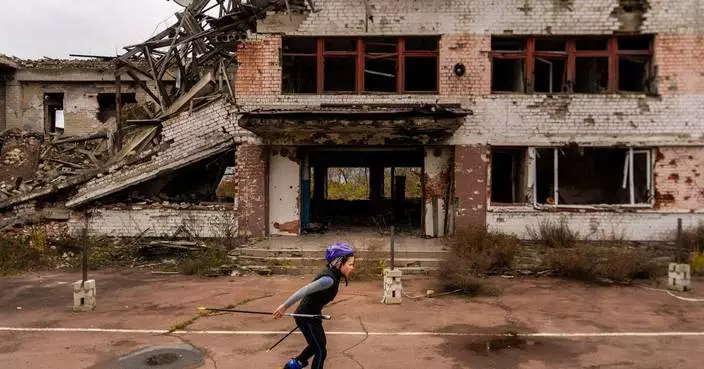
At a war-ravaged sports center in Ukraine, the hope for Olympic glory persists
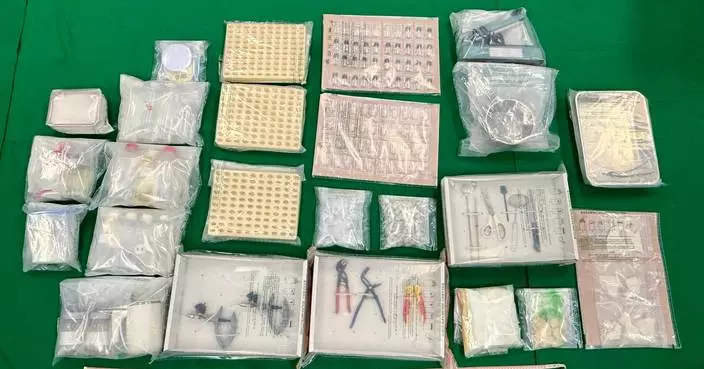
Hong Kong Customs dismantles drug lab, seizes $10 million in etomidate and cocaine, arrests two suspects.

New Oceania soccer competition has a 2029 Club World Cup spot as the winner's reward
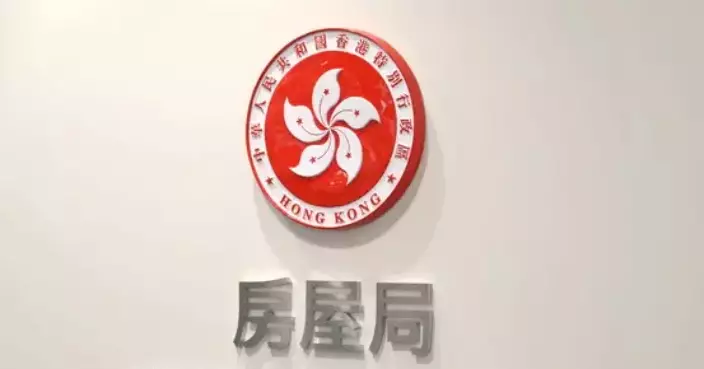
Tender Invited for Light Public Housing Management in Tuen Mun, Encouraging Experienced Organisations to Participate

FEHD Reports Low Aedes Albopictus Mosquito Levels in January Gravidtrap Survey
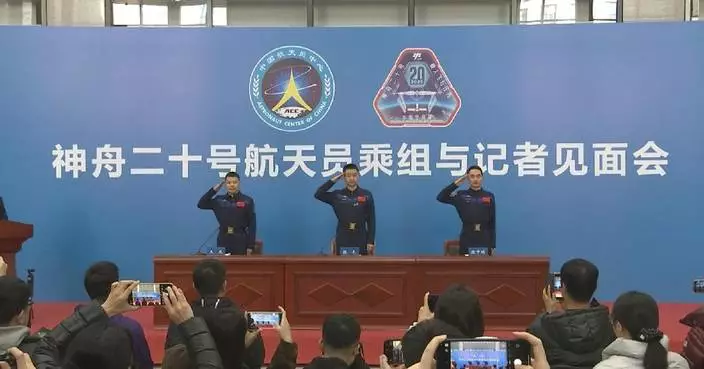
Returned Shenzhou-20 astronauts meet press

VF 8 Is Connecting a New Global VinFast Community
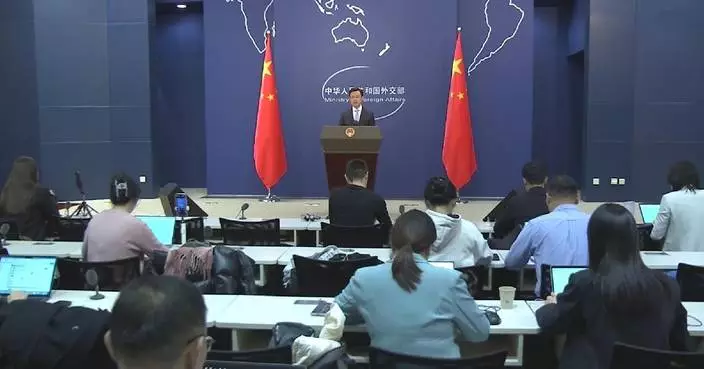
China to further promote innovative strategic partnership with Switzerland for more outcomes: spokesman
China to promote innovative development of foreign trade
Türkiye opposes military operation against Iran, says FM

ONYX Hospitality Group Partners with Yee Fung Group to Launch "Y Hotel Nanshan Shenzhen", Expanding its Portfolio in China
Chinese shares close lower Friday
China FAST telescope links with test antennas in breakthrough upgrade
China launches 'TIR Plus' business models to upgrade cross-border logistics

DX GRAVITY Exhibition Fosters Design Networking Across Greater Bay Area

Hong Kong and Macao Relax Immigration Clearance Age and Enrollment Requirements for Faster Services

Hong Kong Awards for Environmental Excellence Recognize 54 Organizations for Contributions to Sustainability in 2024

The 19th Asian Financial Forum will be Held for Two Days Starting from January 26th, with a "Global Industry Summit" Session Newly Added

Traffic Changes Announced for Hong Kong Marathon 2026 This Sunday, January 18
China's Xuelong icebreaker leaves New Zealand for Antarctic expedition after replenishment
China reiterates opposition to official engagement with Taiwan region
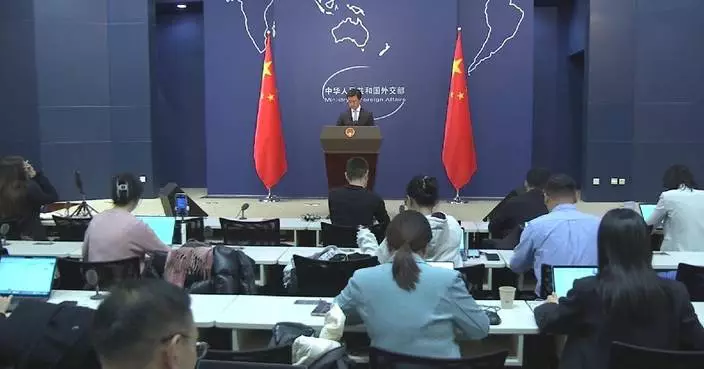
FM spokesman on Japan-Philippine defense pact

Hong Kong Launches New Logistics Initiatives for Sustainable Development and Digital Transformation

She set a photo afire, lit a cigarette — and became a symbol of resistance for Iran protesters
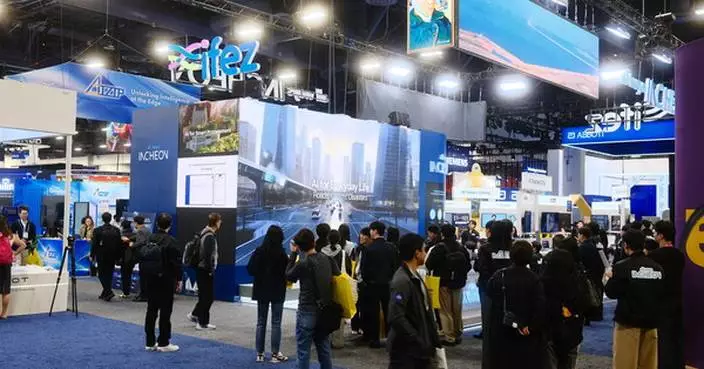
INCHEON-IFEZ Booth Wraps Up a Successful CES 2026, Recording $560M in Export Consultations and 17 Innovation Awards
Cuba receives remains of 32 soldiers from U.S. Venezuela conflict
Chinese President Xi meets Canadian PM in Beijing

Sir David Trench Fund Now Accepting Applications for 2026-27 Recreation Projects
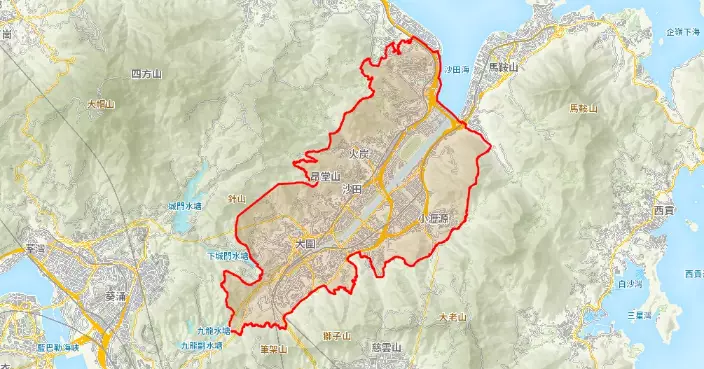
Sha Tin Outline Zoning Plan Amendments Announced by Town Planning Board

Six Beaches Rated Good for Swimming in Latest Water Quality Assessment
Xi hopes new foreign ambassadors gain comprehensive understanding of real China
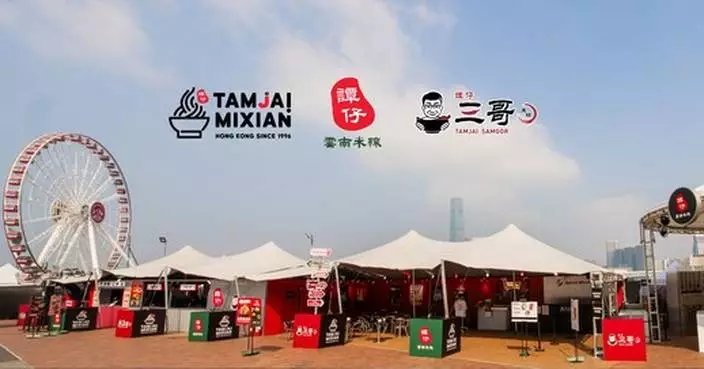
Tam Jai International Unites Its Three Iconic Brands at Clockenflap 2025, Rallies Support for Tai Po Community with "Made in Hong Kong, Made to Move" Spirit
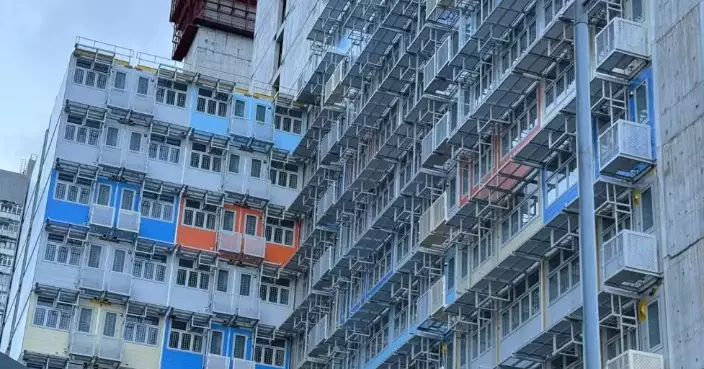
Government Punishes Contractors After Investigation into Construction Malpractices at Light Public Housing Sites
Milano-Cortina Paralympics reveal opening, closing themes as Games draw near
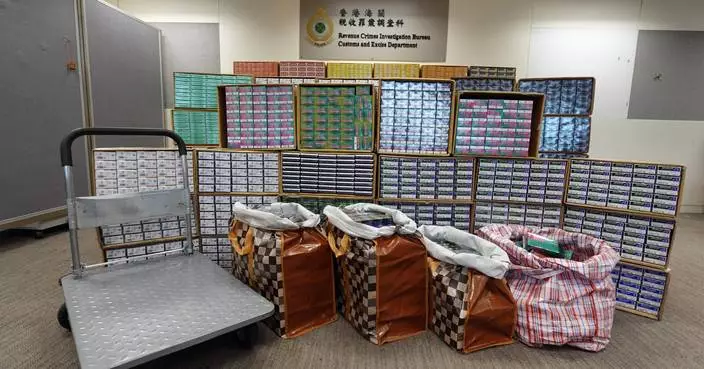
Man Sentenced to 13 Months for Dealing Illicit Cigarettes and Alternative Smoking Products in Hong Kong

AFERIY Unveils Next-Generation Portable Power Station Nomad1800 at CES
Japanese protesters urges PM to retract erroneous remarks on China’s Taiwan

Warriors coach Steve Kerr chatted with Jonathan Kuminga about his uncertain situation

Hongqi Golden Sunflower Guoya Receives Recognition from Gulf Business

Scales Intelligent Driving into Heavy-duty Trucks and Unmanned Logistics
UN must resolutely defend victorious outcomes of World War II: Chinese envoy

The Premier Forum for Air Rescue Experts: AirMed World Congress 2026 in Munich

Maple Leafs' William Nylander exits game with lower-body injury

NEPCON JAPAN Opens Next Week at Tokyo Big Sight with 1,850 Exhibitors, Marking its 40th Anniversary

Trump threatens to use the Insurrection Act to end protests in Minneapolis

Wembanyama shaves head, shines brightly in leading Spurs past Antetokounmpo, Bucks

In their words: Greenlanders talk about Trump's desire to own their Arctic island

HiTHIUM Recognized as the World's First Lighthouse Factory for Energy Storage Batteries

Nikko Style Niseko HANAZONO Celebrates One Year Since Opening
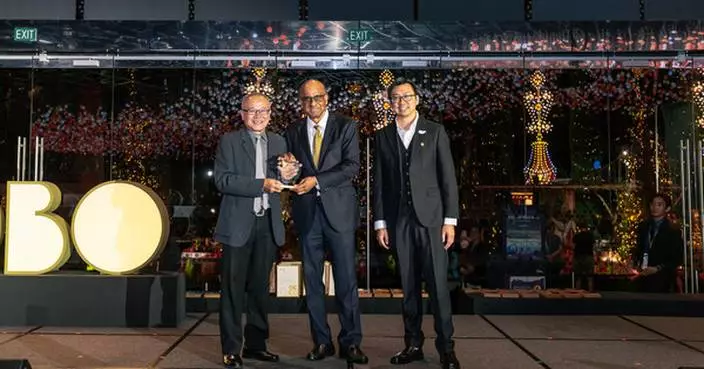
RSP Marks the Start of Its 70th Anniversary Year with Design Excellence and Global Engagement
Sound, stable China-Canada ties serves common interests of both countries: Xi

Butler, Curry, Moody give Warriors three scorers with 20 or more points in 126-113 win over Knicks

American Ben Shelton heads to the Australian Open after losing in the Auckland quarterfinals

Eichel scores in OT as Golden Knights rally to beat Maple Leafs 6-5
China to introduce measures to promote financial support for consumption in 2026
Winter storm slams Toronto, closes schools, disrupts traffic
U.S. stocks close higher as chip, financial stocks rally

Trail Blazers overcame Avdija's absence to beat the Hawks 117-101
Chinese yuan weakens to 7.0078 against USD Friday

Sorokin's NHL-leading fifth shutout and Duclair's late goal lift Islanders over Oilers 1-0
U.S. dollar ticks up

How the White House and governors want to fix AI-driven power shortages and price spikes

Inside a year of firings that have shaken the Trump Justice Department: 'A great deal of fear'


